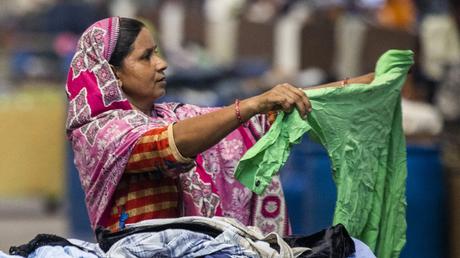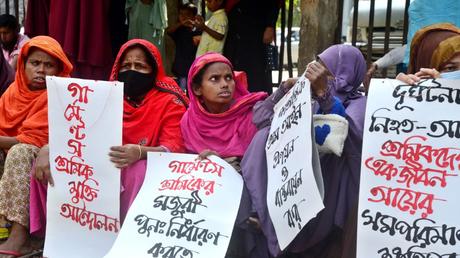
Due to reports of clothing worker exploitation, pending legislation to address it, and a heightened awareness of social impact during the pandemic, social sustainability has received priority this year. Sustainability must be all-encompassing; while the environment’s impact is significant, it cannot come at the expense of lives or livelihoods.
This fragile balance between people and the environment is highlighted by sustainable growth, one of the major issues of 2022. The “just transition” and degrowth initiatives like circularity and overproduction, according to experts, will be the main issues for 2023.
Brands with local supply chains and those aiming to re-shore or near-shore were recognized during the September Venice Sustainable Fashion Forum. Local craft ateliers were funded by Prada’s Kindergarten of the Lagoon ocean conservation project and Fendi’s Hand in Hand project. Lorenzo Bertelli, director of corporate social responsibility for the Prada Group, stated at the time that the goal was to transition to stakeholder capitalism and build a stronger balance between people and the environment.
Social impact was highlighted in brand impact reports. Disability inclusiveness was addressed in the Gucci report. In its annual report, Nordstrom emphasized its charitable contributions ($3.6 million to organizations, more than 40,000 pairs of shoes given to children in need through Shoes That Fit, and the addition of 145 Black and Latinx-owned firms to its line-up). Thredup, a resale marketplace, talked about diversity, equity, and inclusion as well as staff health in its inaugural impact report. Nevertheless, measures differ between reports, and experts assert that social impact cannot be accurately measured. Chloé, a brand owned by Richemont, introduced its Social Performance & Leverage tool in February to assess suppliers’ performance in areas such as gender equality, living wages, diversity and inclusion, training, wellbeing, and work quality.
Experts claim there is still plenty to do. Human rights in the supply chain, diversity and inclusion in the corporate headquarters, and balancing social and environmental effects in all sustainability decisions should be prioritized by businesses in 2023.
According to Safia Minney, social entrepreneur, author, and founder of Global Village and People Tree, “We need to show inspiring stories of social justice, “We need much more holistic systems thinking.”
Garment worker rights backed by legislation

Momentum for legislation pertaining to garment worker rights has increased since 2021, when California passed Senate Bill 62 (guaranteeing a minimum wage for garment workers and holding brands accountable, even for third-party partner violations) and the Bangladesh Accord, a legally binding agreement that was due to expire in 2021, was renewed and expanded. Pakistan became a signatory this week to the International Accord for Health and Safety in the Textile and Garment Industry, which currently has about 200 brand names as signatories. Additional countries may follow.
In 2022, the US kept up its practice. The Fashion Sustainability and Social Accountability Act was presented in January by Stella McCartney and state senator Alessandra Biaggi of New York to hold major corporations accountable for their social and environmental impacts. With severe penalties for non-compliance, brands would be required to disclose the median worker wage as well as the ways in which they integrate ethical business practices into their management and policy frameworks. The idea was improved in November following months of discussion. In this, fashion retailers and garment workers shared joint and several liability, enabling garment workers to sue companies for unpaid wages. Advocates anticipate success in 2023.
The Fashioning Accountability and Building Real Institutional Change (Fabric Act), which addresses wage theft, was presented by Senator Kirsten Gillibrand in May. The Act will promote near-shoring and legalize the anti-wage theft provisions of Senate Bill 62. The Act’s strength, according to experts interviewed by Vogue Business, is how specifically it addresses labor violations in the fashion industry. According to Thulsi Narayanasamy, director of international advocacy for the Worker Rights Consortium, “it’s not just about filling gaps in US labor regulations; it’s also about knowing how to solve a fundamental power imbalance within the apparel business between suppliers and brands.” That is essential.
In spite of this, violations of labor rights persist, and the ability of garment workers to form unions has declined, calling for strict international standards. According to the advocacy group Labour Behind The Label, Amazon, VF Corp, Gap, and Patagonia have not yet ratified the revised Bangladesh Accord. This is important as claims of labor exploitation in the textile industry grow. A Channel 4 broadcast from October stated that Guangzhou manufacturers producing the fast-fashion retailer Shein paid their employees as little as 3p per garment, with deductions for mistakes made during 18-hour shifts. Shein committed to spending $15 million over the following three to four years to improve its supply chain and an additional $4 million a year to increase surprise audits of its suppliers, but experts argued that these efforts would fall short if the overproduction and overconsumption that underpin Shein’s business model were not addressed. Experts believe that gender equality in fashion is lagging because women are disproportionately affected by these issues.
Shein’s extensive supplier base was not audited or managed, which interferes with the rights of garment workers. There hasn’t been much progress, according to the Fashion Revolution 2022 Transparency Index, which evaluates 250 significant companies based on their sustainability data. Only 27% of brands have a public strategy for achieving living wages throughout their supply chains for the third consecutive year. Only 11% of companies declared their code of behavior for purchases during the epidemic, which could result in wage theft and disruption. The coordinator of Fashion Revolution’s research and policy, Delphine Williot, said, “The evidence speaks for itself.” “Slow.” EU legislation was sought by the nonprofit’s Good Clothes, Fair Pay campaign in July. 79,000 signatures out of a million.
Social sustainability is determined by a brand’s culture
To explain widespread resignations brought on by pandemic uncertainty and a need for purpose in 2021, the term “The Great Resignation” was created. The US Bureau of Labor Statistics reports that 47 million Americans left their jobs voluntarily in the past year. not a slowdown this year. According to the World Economic Forum, 20% of all workers will be laid off by the end of the year.
Numerous sectors, including the fashion industry, report feeling overworked, underpaid, and exhausted. Choosing to leave the hustler culture, or “quiet quitting,” dominated social media in 2022. Experts encourage businesses to set up distinct boundaries and supporting policies to prevent this. Designer Mara Hoffman from New York once said, “If my people are sick, my company is sick.”
Proponents claim that a four-day workweek boosts efficiency, downtime, and employee satisfaction. A six-month study with over 70 UK firms got underway in June. 86% of participants said they would keep the policy at the midpoint in September. Two fashion and beauty companies, Desigual and Bolt, have applied the model internationally.
L’Occitane and Lush are making investments in the personal development of its staff members in an effort to increase retention and transform the company’s beliefs in favor of sustainability. According to Susan Gelinas, senior vice president of people and culture at Lululemon, “developing our employees allows us to recruit, retain, and cultivate the best talent.” This is important to Gen Z workers, who desire affiliation, purpose, and personal growth.
Initiatives for inclusion and diversity are part of retention. According to a McKinsey analysis from 2022, 46% of women of color and 35% of white women expected to stop smoking. According to McKinsey, 60% of chief diversity officers in 2018 left their positions, leaving a leadership gap and a growing sense of discontent in the profession. Diversity is a top priority for the fashion industry. Although progress is sluggish, some businesses are making strides by mentoring and supporting mid-level underrepresented talent.
Gucci was recognized by Disability:IN as a notable employer of impaired talent, bringing attention to the difficulties faced by challenged workers. Everybody is susceptible to incapacitation at any time. Therefore, this effort improves possibilities and retention for all employees, according to Sinéad Burke, a member of Gucci’s global equality council and accessibility expert whose new company, Tilting the Lens, is a strategic partner to the brand.
aiming for a just transition
Experts forecast that by the end of 2022, advancements will have prepared the way for 2023’s fashion to acknowledge its colonial past and neocolonial present.
Fashion schools are decolonizing by introducing new courses and challenging the dominant Western perspective on fashion history and who is recognized. Decolonization, according to educator and consultant Kim Jenkins, founder of Artis Solomon and the Fashion and Race Database, is the process of recognizing and eliminating the institutional barriers that were erected as a result of colonialism and imperialism. Fashion must address this in terms of supply chain, design, and education if it wants to become sustainable.
A loss and damage fund was created at COP27. A financial framework will be created by COP28 the following year after a temporary group makes suggestions for the operation of the fund. UN Secretary-General António Guterres, in Massachusett said, “It has been refreshing to see climate movements centring climate reparations, but we should be careful that this new fund is not a placeholder for a much larger scale transformation,” he said.
By 2023, fashion will need to include this decolonization philosophy throughout all of its supply chains to ensure positive social impact for everyone. Minney says, “The Global North has neglected its responsibility to the Global South, having exploited its resources and its people, and polluted it with chemicals and waste,”
Sana Jardin, a designer of high-end fragrances, teaches Moroccan women financial literacy and how to turn leftover flower harvest trash into essential oils so they can launch their own enterprises.
In order to find solutions for textile waste that are favorable to the Global South, the French secondhand marketplace Vestiaire Collective banned postings for fast fashion and collaborated with the Ghana-based NGO The Or Foundation. Every week, the Global North sends 15 million old clothes to Kantamanto, Africa’s largest secondhand market, where the Or Foundation is based. Workers in trash management are at risk for serious debt, psychological stress, and health problems like broken backs, malaria, and cholera due to gases from burning rubbish. Co-founder of The Or Foundation Liz Ricketts believes that income redistribution and justice are lacking in sustainable design.
Leave this field empty if you're human: